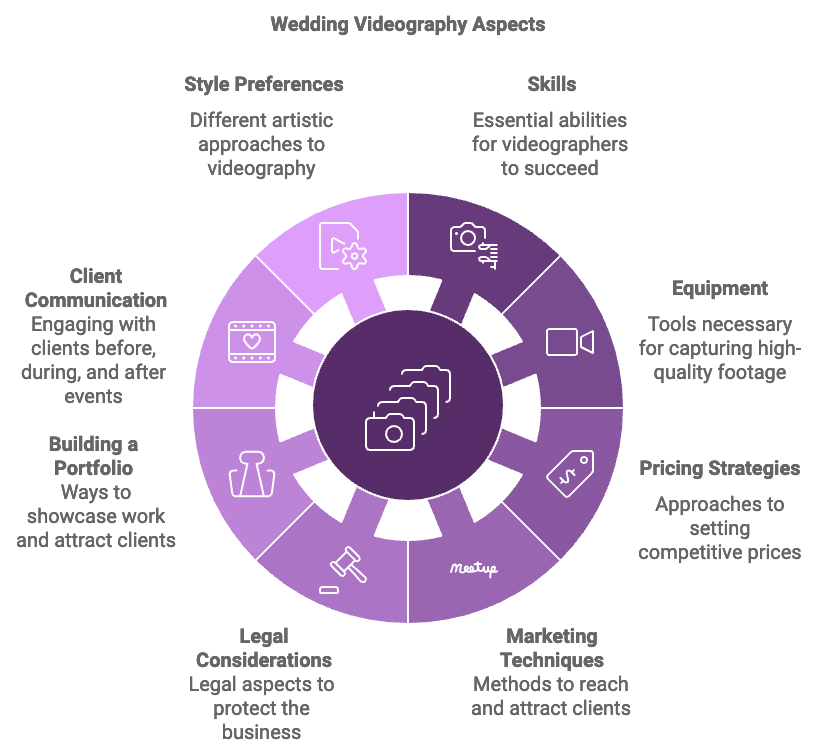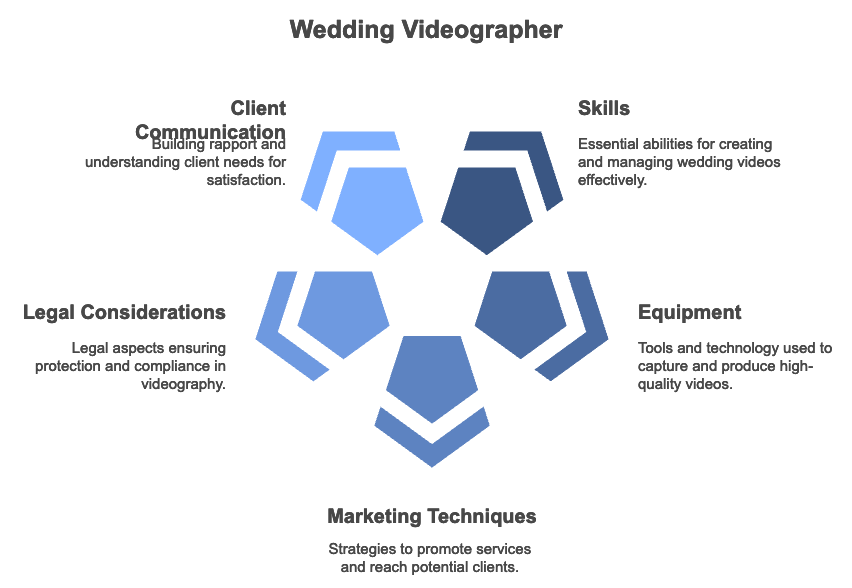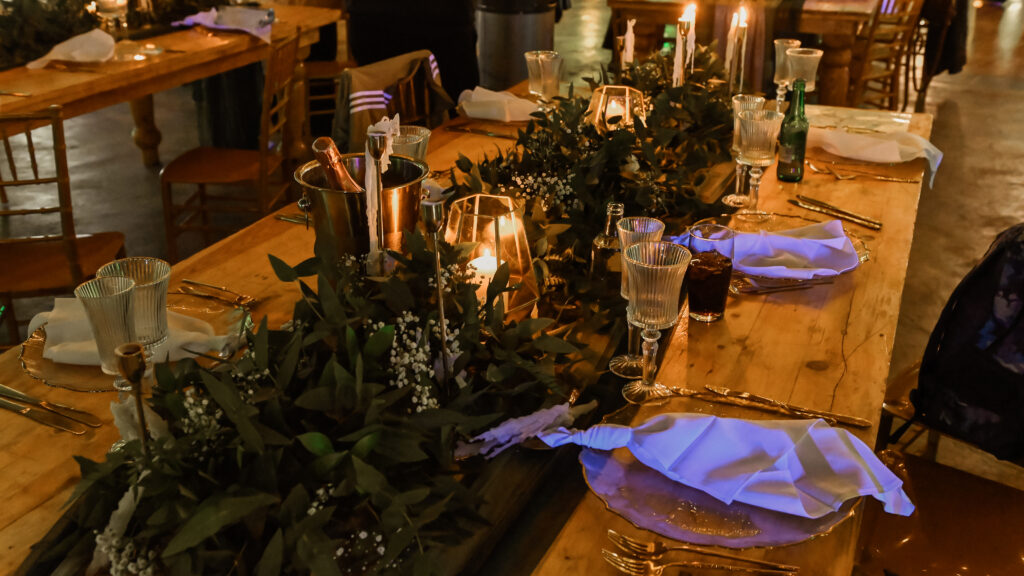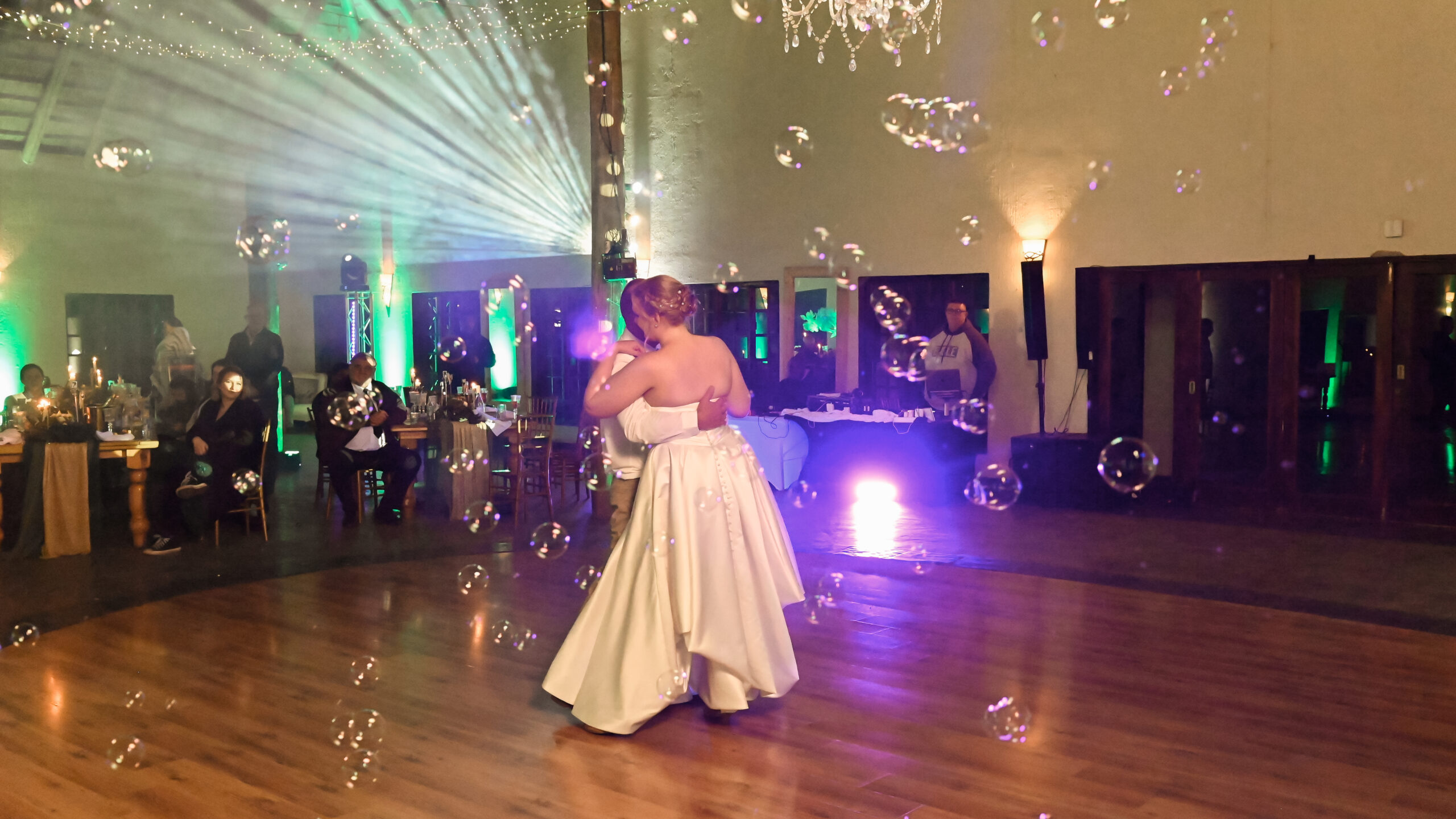A wedding videographer is a professional who captures, edits, and produces cinematic videos of wedding ceremonies and celebrations. They use specialized equipment and skills to create beautiful memories that couples can cherish forever.
Key Takeaways: • Wedding videography requires both technical and creative skills • Quality equipment and backup gear are essential • Building a strong portfolio is crucial for success • Clear client communication and contracts protect both parties • Continuous learning helps stay competitive
What is a Wedding Videographer and What Do They Do?

The Role of a Wedding Videographer
A wedding videographer captures all the special moments of a wedding day through video. They work closely with couples to understand their vision and create lasting memories.
Different Videography Styles
Popular styles include: • Cinematic • Documentary • Short-form • Highlight reels
Essential Skills Needed
Required skills: • Camera operation • Lighting techniques • Audio recording • Video editing • Client communication • Problem-solving
Essential Equipment for Wedding Videography
Camera Bodies and Lenses
Basic equipment needed: • Professional cameras (DSLR or mirrorless) • Prime lenses • Zoom lenses • Memory cards
Audio Equipment
Must-have audio gear: • Wireless microphones • Audio recorders • Backup microphones
How to Become a Wedding Videographer

Building Your Portfolio
Start by: • Second shooting with experienced videographers • Creating sample videos • Building a website • Networking with other vendors
Pricing and Packages
Common Pricing Structures
Wedding videographer prices vary based on: • Experience level • Package contents • Location • Time required
Working With Clients
Client Consultations
Important topics to discuss: • Style preferences • Must-have shots • Timeline • Deliverables • Budget
Business and Marketing
Building Your Brand
Essential marketing tools: • Professional website • Social media presence • Client testimonials • Sample videos • Business cards
Technical Aspects
Camera Settings
Key settings to master: • Exposure • Frame rate • White balance • Focus
Audio Recording
Tips for better audio: • Use multiple microphones • Monitor sound levels • Have backup equipment • Find quiet locations
Post-Production
Video Editing Software
Popular editing programs: • Adobe Premiere Pro • Final Cut Pro • DaVinci Resolve
Legal Considerations
Contracts and Agreements
Important contract elements: • Services provided • Payment terms • Delivery timeline • Cancellation policy • Copyright information
Common Challenges and Solutions
Weather Issues
Solutions include: • Having backup locations • Bringing weather protection gear • Planning alternative shots • Staying flexible
Growing Your Business
Tips for growth: • Network with other vendors • Attend wedding fairs • Keep learning new skills • Stay current with trends • Build strong relationships

Conclusion
Being a successful wedding videographer requires technical skills, creativity, and business savvy. With the right equipment, training, and dedication, you can build a rewarding career capturing couples’ special moments.






